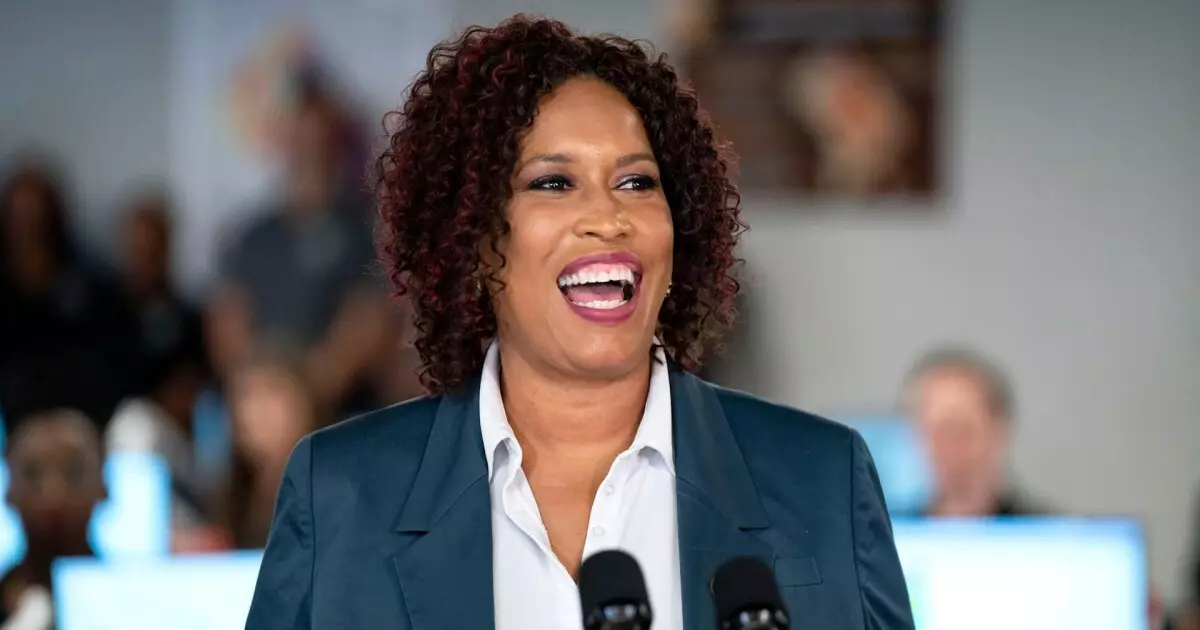The unfolding drama surrounding the District of Columbia’s financial future paints a stark picture of uncertainty and impending crisis. The recent failure of the House to incorporate provisions allowing access to the city’s 2025 budget has prompted serious alarm among the city’s leadership. Mayor Muriel Bowser’s urgent appeals underscore the gravity of the situation, stating that the time for action is now lest the city venture into unchartered waters where extreme measures become necessary to maintain fiscal balance. The overarching sentiment of city leaders resembles a ticking time bomb, and this isn’t merely a procedural hiccup; it has profound implications for the lives and livelihoods of its residents.
Congressional Dysfunction: A Barrier to Progress
In a political landscape riddled with contentious negotiations and partisan strife, Congressional oversight has always loomed over the District. Faced with the conflicting pressures of looming deadlines and complex budgetary negotiations, the House’s failure to clarify funding pathways has left the city in a precarious predicament—a staggering $1.1 billion shortfall now features as the grim backdrop against which the city must operate. As the Senate-approved bill, which ostensibly provides financial relief, languishes in the House, the question arises: is this not a reflection of a broader epidemic of dysfunction in Washington? The inability to prioritize effective governance certainly raises eyebrows and prompts a critique of an institution that frequently prioritizes political theater over substantive action.
The Reality of Federal Dependence
D.C.’s financial trajectory has historically been inextricably linked to the whims of the federal government, and the current crises only amplify the precariousness of this relationship. When President Trump took office with a focus on reducing the federal workforce, the City was faced with a double-edged sword: an influx of federal employees shifted the demographics and economic landscape, but consequential downsizing jeopardized the livelihoods of thousands. The dependence on fluctuating federal policies illustrates the precarious balance D.C. must manage—a microcosm of a larger struggle between autonomy and oversight. Mayor Bowser’s concerns about potentially losing up to 40,000 jobs underscore the sobering reality that D.C. cannot afford to be at the mercy of federal whims.
Future Growth at Stake
What is most concerning is not just the immediate budgetary implications but the long-term economic viability of the city. Bowser’s acknowledgment of a need for proactive measures to support and grow local businesses is not merely a call to action; it is an urgent admonition that without substantial investment and smart policy adjustments, the District risks economic stagnation. While the mayor’s initiatives aim to boost business vitality, the hurdle of federal instability casts a long shadow over these aspirations. If local businesses are to thrive amid rampant uncertainty, empowering entrepreneurs and fostering innovation must become the forefront of D.C.’s economic strategy.
The Fragile State of City Services
Beyond the numbers and legislative gridlock lies a more human narrative: the everyday lives affected by these financial decisions. The mayor’s remarks about cleanliness issues during high-profile events like Cherry Blossom weekend highlight the tangible impacts of budget constraints on city services. The neglect of National Park Service funding, which has made it difficult to maintain the aesthetic integrity of immeasurable cultural significance, represents a failure that resonates far beyond aesthetics. It speaks to a broader failure in maintaining infrastructure and public services that enhance the quality of life for all residents.
A Call to Accountability
As we dissect the evolving situation in the nation’s capital, it is imperative not to overlook accountability in governance. The formation of a task force by the President to improve the city is a welcome initiative, yet it raises important questions about whether such efforts can bear meaningful fruit in a landscape defined by fragmentation. In an era where challenges seem abundant, decisions must reflect a commitment to solving problems rather than merely acknowledging their existence. The call for rigorous oversight of D.C.’s economic future transcends partisan boundaries; it demands a collective fiscal responsibility to safeguard the stability and vibrancy of the District.
Such challenges compel us to engage actively with the pressing issues at hand; the future of Washington D.C. hangs in the balance, and the magnitude of potential repercussions serves as a wake-up call for all those involved in the political process.

